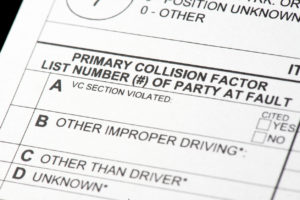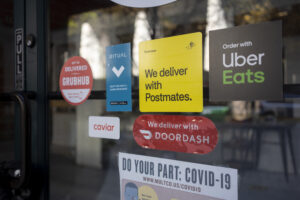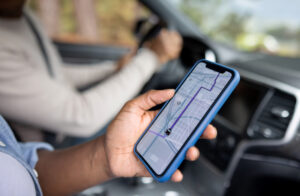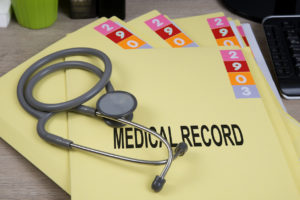- Under Georgia law, payment of a traffic ticket does not legally establish fault in a car accident case.
- To win compensation for an accident claim, the plaintiff may present evidence showing the other driver was liable, but traffic tickets are only admissible if the driver pleaded guilty to the violation.
- Mailing in payment for a traffic fine without pleading not guilty or no contest is considered a guilty plea in Georgia, which means it’s a legal admission that may be presented at trial.
- Even if the ticket is admissible, it’s up to the jury to decide who was at fault for the accident based on all the evidence presented—and the jury may still award compensation to a plaintiff who has pleaded guilty to a traffic violation.
After most car accidents, police officers are called to the scene to help and investigate what happened. Typically, the officer will interview drivers and witnesses, take pictures, make diagrams, and inspect the vehicles and conditions at the scene. If the officer believes a driver has broken the law, they will issue a ticket, or citation. All this information will be documented in a police report.
Insurance companies often rely on the information in a police report when determining whether it will pay a claim. That means the insurance adjuster might argue a claimant was at fault—and not entitled to compensation— for the accident if they received a traffic ticket at the scene. However, just because a driver received a traffic ticket does not automatically prove they were to blame.
Under Georgia law, a traffic citation is merely an accusation of guilt, not a legal finding of fault. In most cases, the police officer who issued the ticket didn’t witness the accident. Rather, the officer formed the opinion that the driver broke the law based on the information gathered. Even in the rare instance that the officer did witness the crash, their opinion about a traffic violation is not legally conclusive.
To win a car accident claim, the plaintiff must present evidence showing the other driver was responsible, which may include photos, videos, 911 calls, witness statements, and the police report narrative. Traffic tickets can also be helpful in proving fault in a car accident case, but whether the citation is admissible as evidence depends on how the driver handled the ticket—did they pay it or challenge it?
When Paying for an Accident Traffic Ticket, Does the Plea Matter?

When it comes to admissibility, yes. At trial, judges and juries make decisions about who was at fault based on the evidence presented. Only certain kinds of evidence are admissible (i.e., allowed to be considered). If a party pleads guilty to a traffic citation, the violation is admissible and may be used at trial.
It’s important to note that you have three plea options when you receive a traffic ticket: guilty, not guilty, or nolo contendre (no contest). You can plead guilty in court, but simply paying the ticket by mailing in the fine is also considered a guilty plea under the law. You can plead not guilty by appearing in court on your summons date and challenging the citation. You can also appear in court, plead nolo contendre, and pay the fine.
Regarding the ticket’s admissibility, it’s the plea—not merely the payment—that’s crucial. For example, even if you’re later found guilty by the court and must pay, the traffic citation is not admissible in a civil injury lawsuit after you plead not guilty. The same is true if you plead nolo contendre. Neither of these pleas is considered an admission of guilt, so this evidence cannot be presented to the jury.
Can a Traffic Ticket Be Used as Evidence to Establish Fault/Liability for a Car Accident?
It depends on whether there was a guilty plea.
If one driver notices that the other was given a traffic ticket after the accident, they may report it to their insurance company. Even if they don’t, the police report will mention the citation, and the insurance adjuster is likely to consider the ticket when deciding whether to pay the claim. The insurance company may deny compensation if the claimant received a citation, arguing the ticket shows they were at fault.
If the claimant/plaintiff then decides to sue the insurance company, however, the citation can only be used at trial if they entered a guilty plea. As discussed, if the plaintiff pleaded guilty in court or if they simply mailed in payment without making a court appearance, the effect is the same—the evidence is admissible.
That means it can be used to help establish liability in an injury case because it’s an admission of guilt. If the plaintiff had entered a not-guilty plea or nolo plea, the evidence can’t be used to prove fault because there’s no admission.
Why Personal Injury Lawyers May Ask Whether the Driver Was Given a Traffic Ticket
Personal injury lawyers routinely investigate car accidents to gather evidence and determine who was at fault. When speaking with their clients, one question attorneys often ask is whether either driver was given a traffic citation at the scene. Attorneys ask this because they need to know whether any laws were broken.
Your lawyer will also need to find out what happened to the ticket to determine whether it can be admitted as evidence if the case goes to trial. If the driver paid the ticket without entering a not-guilty plea or nolo plea, it can be used to help prove liability in a civil claim. A guilty plea doesn’t guarantee a win, but it can greatly increase the odds.
Even if a Person Was Given a Traffic Ticket, Can They Still Be Found Not Liable?
Many people assume that the driver who was issued a traffic citation for an accident is at fault and cannot recover compensation. However, that isn’t always true.
Keep in mind that even if the ticket is admissible, a citation is just one piece of evidence—other evidence may indicate that the cited driver was not at fault. When determining liability, the jury ultimately gets to decide how much weight to give the citation in light of the circumstances and other evidence.
For example, a driver who mailed in their fine may argue they only did it to avoid the inconvenience of appearing in court. Though the jury hears about the citation, it may be persuaded by other evidence showing the driver was not responsible. If the cited driver was not liable for the accident, they may be awarded compensation for their injuries and other costs.
The jury may also find that the cited driver was only partially responsible and award a percentage of damages based on Georgia’s comparative negligence law, which means that more than one driver can share responsibility for an accident.
If you were at least 50 percent liable, you can’t recover any amount of compensation. But if you were less than 50 percent at fault, you may recover, but your damages award will be reduced by your share of liability. For example, if you suffered $100,000 in costs for an accident but were 30 percent at fault, you may be awarded $70,000 in damages. That means that even if you violated a traffic law, the jury may still find that the other driver was more at fault for causing the accident and award you compensation.

 1201 West Peachtree Street #2339 Atlanta, GA 30309+1-770-212-3795$0-$100000
1201 West Peachtree Street #2339 Atlanta, GA 30309+1-770-212-3795$0-$100000The staff at Millar Law Firm are very knowledgeable and helpful! I recommend them to ALL of my friends and family in the Atlanta area! Thank you so much for ALL your help!

Call The Millar Law Firm for a Free Consultation
If you received a traffic ticket for a car accident or were injured by another driver who was ticketed, you should speak to an experienced personal injury attorney about how this can affect your compensation claim. Call us today at (770) 400-0000 or contact us online to set up a free consultation with one of our attorneys















